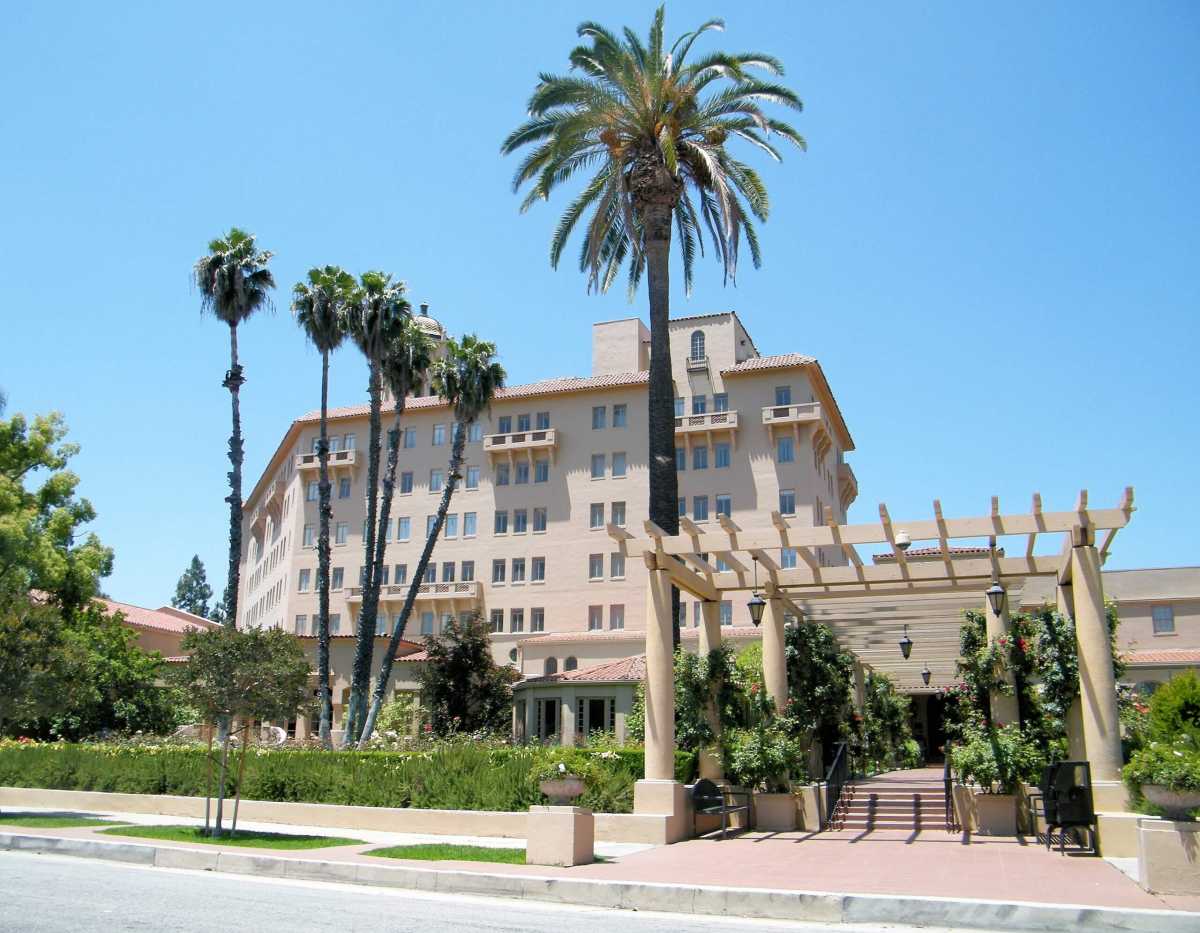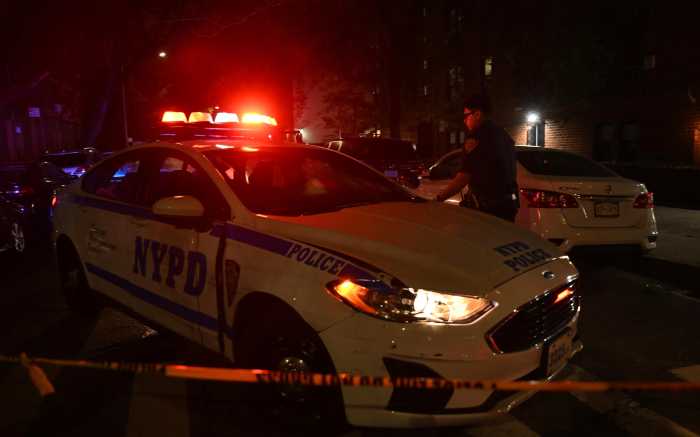On Sept. 13 and 14, federal courts in California, relying on an expansive interpretation of “free exercise of religion,” ruled that a public school must give official recognition to a religious student club that requires its student leaders to condemn same-sex marriage and gay sex and that public school teachers may be exempted from a school policy of respecting the privacy of transgender students by not “outing” them to parents without the students’ permission, based on the teachers’ religious beliefs.
In the Sept. 13 ruling, an “en banc” panel of 11 judges from the US Court of Appeals for the Ninth Circuit, which sits in San Francisco, reversed a district court’s ruling in favor of the San Jose school district and held that the district’s non-discrimination policy, which forbids discrimination because of sexual orientation, could not take priority over the religious freedom rights of the Pioneer High School chapter of the Fellowship of Christian Athletes (FCA), a branch of a national organization that allows any student to be a member but that limits leadership positions to those who affirmatively endorse a “Statement of Faith” and “Sexuality Purity Statement” that provides that “sexual intimacy” may only take place within the marriage of a man and a woman, and that “marriage is exclusively the union of one man and one woman.”
FCA chapters had been recognized for decades at three of the high schools in the San Jose school district, and administrators later claimed that they were unaware that the national organization was imposing this religious requirement on chapter leaders. In April 2019, some students who were upset about FCA’s leadership policy showed copies of the Statement of Faith and Sexual Purity Statement to a teacher at the school, who brought them to the principal and argued that the FCA chapter should not be a recognized student club. The principal brought this to the attention of school district officials and ultimately there was a decision to rescind FCA’s status, on the ground that it violated the district’s anti-discrimination policy. Students protesting against the FCA’s leadership policies appear to have contributed to the district’s decision. The FCA club would still be able to meet at the high school, but it would lose the privileges enjoyed by recognized student clubs, including priority in reserving meet rooms and listing in official school publications.
FCA sued the district in the US District Court for the Northern District of California, which includes San Jose, claiming that this action violated their constitutional rights as well as the Equal Access Act, a federal statute that requires that schools receiving federal financial assistance not discriminate among student clubs and activities based on the content of their speech. FCA immediately filed a motion for a preliminary injunction, asking the court to order the school district to recognize their club while the case was pending.
District Judge Haywood S. Gilliam, Jr., an Obama appointee, refused to issue a preliminary injunction. He found that FCA was unlikely to prevail on any of its legal theories and thus was not entitled to reinstatement as an official club while the case was pending. FCA’s appeal met a friendlier reception from a Ninth Circuit three-judge panel, which ruled 2-1 to reverse Judge Gilliam and issue the preliminary injunction. The district asked for review by an “en banc” panel of the Ninth Circuit, which was granted by majority vote of the Circuit Court.
The Ninth Circuit now has 28 active judges, of whom 15 were appointed by Democratic presidents and 13 by Republican presidents. “En banc” panels have 11 judges, made up of the chief judge of the Circuit, the judges who sat on the three-judge panel, and additional judges drawn at random. In this case, there was a surprising and unrepresentative result from the process of constituting the panel. The chief judge, an Obama appointee, had been the dissenter on the three-judge panel. Judge Mary Murguia would have affirmed Judge Gilliam’s decision to deny the preliminary injunction, and one suspects that a majority of the circuit would have agreed with her and voted to grant “en banc” review, which automatically vacates the three-judge panel decision and sets the case for rehearing.
Surprisingly, however, the only other Democratic appointee on the “en banc” panel was Jennifer Sung, a recent Biden appointee. All of the other judges, the two in the majority from the three-judge panel and the others drawn at “random,” were Republican appointees: Consuelo M. Callahan, Milan D. Smith, Jr., and Sandra S. Ikuta (appointed by George W. Bush); and Mark J. Bennett, Eric D. Miller, Bridget S. Bade, Daniel A. Bress, Danielle J. Forrest, and Patrick J. Bumatay (appointed by Donald J. Trump). Thus, Republican appointees on the “en banc” panel outnumbered the Democratic appointees by 9-2, a starkly unrepresentative panel.
And the nine in the majority, in an opinion by Judge Callahan, decided that First Amendment religious freedom took priority in this case over the District’s anti-discrimination policy. “While it cannot be overstated that anti-discrimination policies certainly serve worthy causes — particularly within the context of a school setting where students are often finding themselves — those policies may not themselves be utilized in a manner that transgresses or supersedes the government’s constitutional commitment to be steadfastly neutral to religion,” wrote Judge Callahan. “Under the First Amendment’s protection of free exercise of religion and free speech, the government may not ‘single out’ religious groups ‘for special disfavor’ compared to similar secular groups.” In support of this statement, the judge cited the Supreme Court’s decision from 2022 upholding the right of a Christian football assistant coach at a public high school to preside over a prayer session on the field after every game.
In a concurring opinion, Circuit Judge Danielle Forrest, a Trump appointee, argued that the school district had also violated the Equal Access Act by rescinding FCA’s recognized club status.
Judge Murguia dissented, largely joined by Judge Sung, pointing out various ways that the majority opinion distorts or misrepresents the facts and departs from prior Ninth Circuit precedents. Unfortunately, an “en banc” court can reverse prior circuit precedents, and this unrepresentative 9-2 majority seized upon the opportunity to do so.
The next day, Senior District Judge Roger T. Benitez, an appointee of President George W. Bush at the US District Court for the Southern District of California, issued a preliminary injunction against the Escondido Union School District, preventing it from enforcing a requirement that teachers and other staff honor the privacy of transgender students by not discussing the students’ gender identity with their parents without the students’ consent.
The district’s privacy policy was adopted as part of a package of policies intended to comply with state law and guidance from the US Department of Education, which includes honoring the naming and pronoun preferences of students and recognizing their gender identity for purposes of facilities access and school activities. Two middle school teachers, Elizabeth Mirabelli and Lori Ann West, claiming a violation of their freedom of speech and free exercise of religion, sued to challenge the policy regarding parental notification, and sought a preliminary injunction so that they would be free to notify parents about transgender children without incurring any penalty from the school district.
Judge Benitez granted their motion. He rejected their freedom of speech argument, concluding that anything they were saying to parents would be in their capacity as teachers and was thus “government speech,” not protected by the First Amendment’s free speech clause under Supreme Court precedents. But he found that the plaintiffs were likely to prevail on their free exercise of religion claim, rejecting the school district’s argument that honoring the privacy of students who feared adverse consequences if their parents were informed about gender non-conforming behavior or their gender identity was less important than preserving the right of their parents to be informed about these issues.
“Mirabelli believes that the relationship between parents and children is an inherently sacred and life-long bond, ordained by God, in which the parents have the ultimate right and responsibility to care for and guide their children,” he wrote. “In a similar vein, West believes that the relationship between parents and their child is created by God with the intent that the parents have the ultimate responsibility to raise and guide their child. Both Mirabelli and West believe that God forbids lying and deceit.”
Judge Benitez rejected the school district’s argument that asking the parents not to tell these things to parents was asking them to lie or deceive them, insisting “that cannot be fairly said when the policy requires plaintiffs to conceal from parents, by misdirection and substitution, accurate information about their child’s use of a new name, gender, or pronouns at school. It is one thing if the policy merely delegated the task of talking with parents about a student gender incongruence to dedicated, trained personnel. It is quite another to require teachers to withhold this information with the knowledge that the information will be impossible for the parents to obtain from the school. It is that aspect which infringes on the plaintiffs’ free exercise of their religious beliefs.”
Judge Benitez decided that the policy was subject to strict scrutiny review, claiming that “evidence is lacking showing the policy is being applied to instructional aides, substitute teachers, office staff, or non-teaching administrators” and that “the only evidence presented supports the teachers’ claim: that training regarding [the policy] was limited to full-time teachers.” As such, he concluded, it was not a policy of “general applicability” and thus was particularly burdening the religious beliefs of the plaintiffs.
In a strategic move that failed, the school district argued that the teachers were not being compelled to do anything violating their religion and did not have standing to challenge the policy in federal court, but Judge Benitez rejected this argument, writing: “In the end, Mirabelli and West face an unlawful choice along the lines of: ‘lose your faith and keep your job, or keep your faith and lose your job.’”
“The only meaningful justification the District offers for its insistence that the plaintiffs not reveal to parents gender information about their own children rests on a mistaken view that the District bears a duty to place a child’s right of privacy above, and in derogation of, the rights of a child’s parents,” Benitez added.
Ironically, just days earlier a different federal judge issued a preliminary injunction sought by California Attorney General Rob Bonta against the Chino Valley school district, which had formally adopted a policy requiring that parents be notified about their transgender children.
The school district can appeal the Escondido decision to the Ninth Circuit, and the Chino school district may appeal that decision as well. What kind of reception would such appeals receive in light of the way the Ninth Circuit en banc panel decided the San Jose FCA case the previous day? That’s anybody’s guess, given the unpredictability of three-judge panel and en banc panel composition in a huge circuit almost evenly divided between conservative and liberal judges.


































